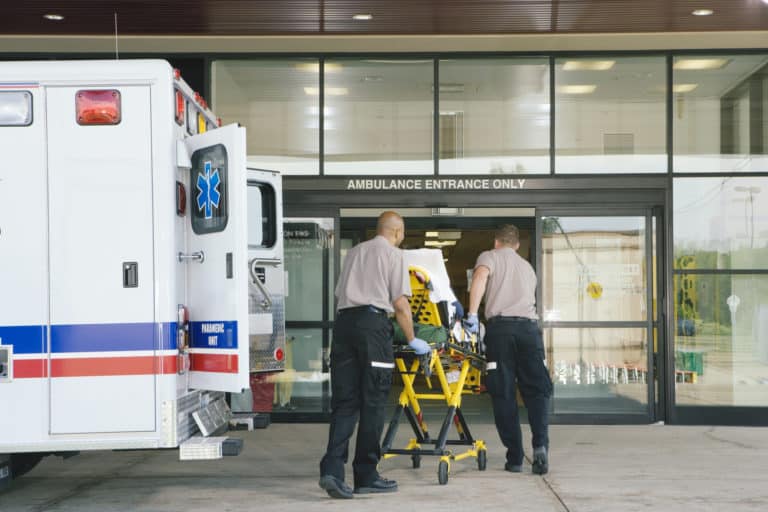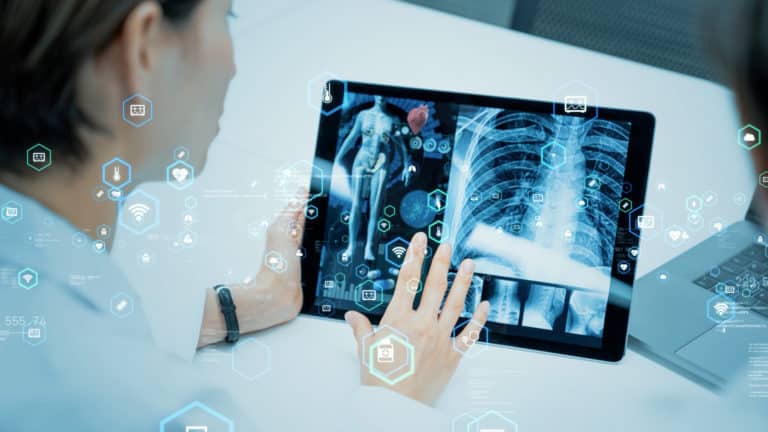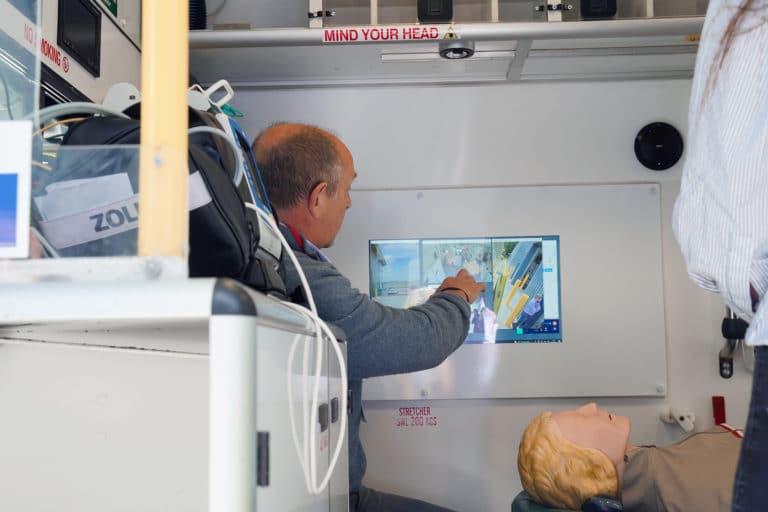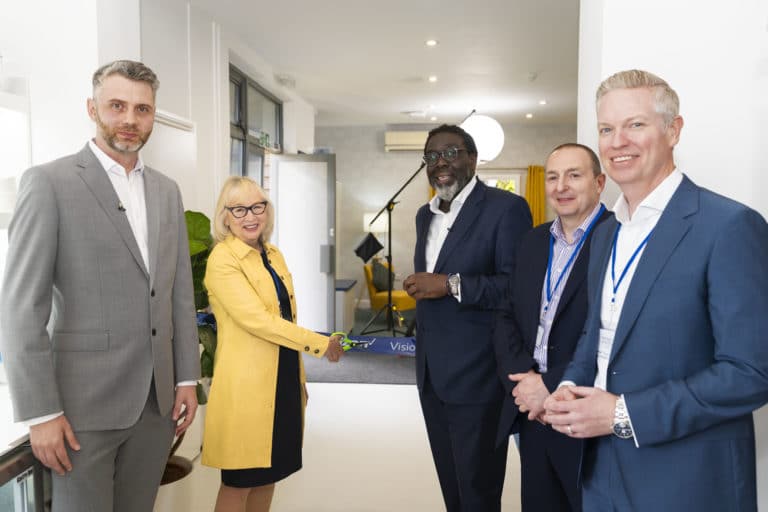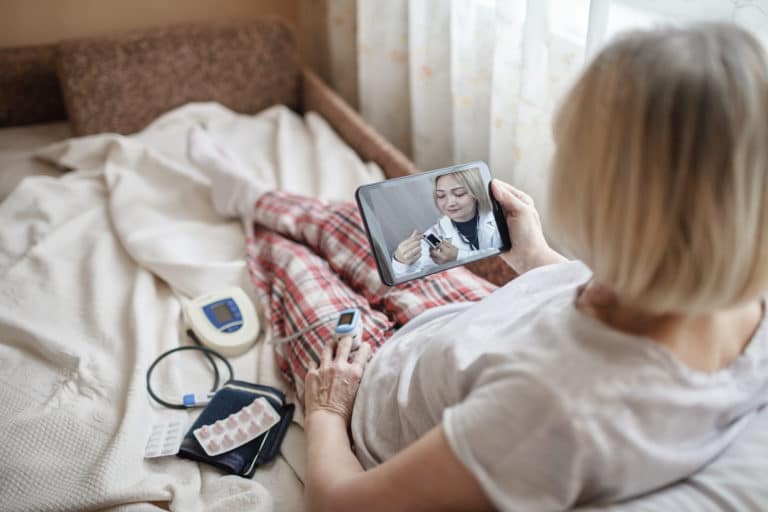Mike Farrar is the former Chief Executive of the NHS Confederation. In December 2021, Verizon and Visionable asked Mike to host a roundtable of senior stakeholders and thought leaders from the NHS to discuss digital transformation in healthcare and what’s needed to make that happen. He shares his thoughts on the discussion and provides five key thinking points for Integrated Care Systems (ICSs).
The last two years have highlighted the importance of truly integrated care. It’s been a challenging period, but it’s also shown how technology can help both improve service levels and lighten the load on a strained workforce. When NHSX and NHS Digital were integrated into NHS England, data and digital moved from the sidelines to being high on the agenda—a key part of the transformation of care. But what does this mean for integrated care systems (ICSs)? That’s what we discussed at a recent roundtable event with experts from across the NHS. It was a fascinating discussion and one that’s hard to summarise in a few key points, but I’m going to try anyway. Any healthcare organisation should ask the following five questions before embarking on further transformation.
1. Do we have the basics in place?
In many rural parts of the country, patients and healthcare staff don’t have 5G, 4G or even 3G. Many can’t even get a decent broadband connection. These basic needs should be seen as not just a nuisance, but as a public health issue. Reliable, basic connectivity is a must to enable your health and social care teams to share data, use resources effectively and deliver the best care possible. It’s also vital to people getting reliable information, as the pandemic showed. Without it, we risk seeing the inequality of care widen—with some healthcare providers flourishing through digital transformation and others struggling to roll out even basic services, like electronic patient records (EPRs).
2. How can we overcome external resistance?
COVID-19 has confounded many expectations. Many of the patients that were thought to be resistant to technology embraced it. It has quickly become a key part of their healthcare. Yes, it was through necessity—but things like video calling a GP or triage nurse have not just become the norm, for many they are the preferred option. Education programmes are important, but the resistance may be less than you expect. People respond to results. For instance, 111 has proved a huge success with patients and has succeeded in easing the pressure on ambulance trusts. Having faith in the public’s ability to adapt and seize on new services is important. Effective communication around new digital services is critical to their success.
3. Who will be our “champions of change” promoting digital transformation in healthcare?
Some argue that there needs to be a seismic change in culture for digital to make a difference in healthcare. But that’s not the consensus of our roundtable. The key to overcoming cultural resistance is to not focus on the cynics, but on those people that naturally relish and drive change. There are champions of change everywhere in the NHS—and they must be found, celebrated and supported. These are the team members that should be working closely with your health technology partners—providing the application nitty-gritty while driving change from the inside.
4. Have we got the right external partners?
It helps if technology partners have experience of working in the healthcare environment. The insight gained, and knowing what does and doesn’t work in different healthcare settings, can improve the chances of success and avoid common pitfalls. But working with external partners also opens opportunities to learn how technology has been used in other sectors. The objective may be profits rather than the provision of care, but new ways of working in the commercial sector—and the tech that underpins it—can often be applied in healthcare too. It’s important that ICSs also think about how they work with tech providers. Often, organisations approach partners looking for a specific solution not fully understanding the potential of the tech that they’re investing in. Sharing the problem and working more collaboratively can give you a better chance of achieving the best possible result.
Visionable, a leading innovator in healthcare and its partner, Verizon, a trusted technology company, set up this event to listen to those working in healthcare and demonstrate their shared commitment to building solutions that work. To deliver successful digital projects, you need to make sure that the partners you choose are able to do more than sell “what’s on the cart” and can help you think more broadly. As the population ages and money remains tight, it will take bold thinking around digital for ICSs to transform, sustain and ultimately improve care.
5. How can we make the most of our data?
At the roundtable event, we heard amazing ways that data is already being used to transform care. One example was using weather data and trends on broken boilers to anticipate an increase in respiratory conditions. Another was the analysis of food shopping data to model the risk of diabetes by area. These use cases show the exciting potential for data to shift the NHS from reactive to proactive healthcare. But data can only make a difference if it is interpreted and joined up. Of course, there will always be valid concerns around security and privacy. So, any system holding or processing data must have solid security measures in place from the start. And it’s not just data theft that healthcare facilities need to worry about—as well-publicised ransomware attacks have shown.
Digital and data won’t be the change, but it will enable it.
The roundtable was a lively and enlightening event and I hope that there will be more similar events. The imperative to transform isn’t in doubt; nor the importance of the role that technology has to play in that. The NHS is a truly amazing organisation of which the vast majority of the U.K. is rightly proud. But, like with all healthcare systems, there’s a lot of work to do. I hope that you’ve found this summary of the event useful.
Verizon and Visionable are driving digital transformation in healthcare
Verizon and Visionable are working together to help healthcare organisations improve patient outcomes via more effective use of technology. Together we can deliver the secure, high performance, highly reliable infrastructure and platforms needed to enable new digital services, and, ultimately, better patient outcomes. This includes secure, real-time clinical collaboration that helps share critical expertise and provide care to patients remotely.
We can help you to empower patients and make it easier for clinical staff to deliver exceptional standards of care when and where it’s needed.



